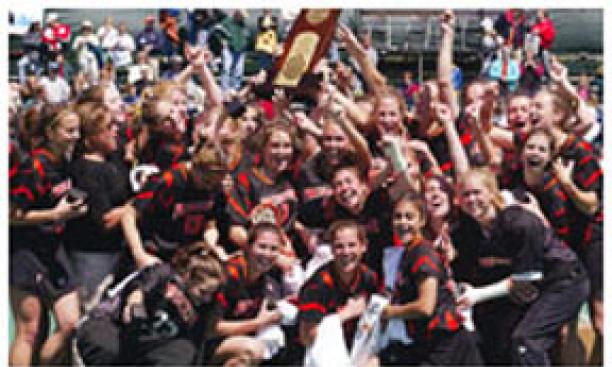

This fall, Princeton’s scholar-athletes won four Ivy League championships—in men’s and women’s cross country, women’s volleyball, and field hockey— and mustered five Ivy League Players of the Year. While these results are cause for celebration, they are not exceptional for Princeton. Last year, the Tigers led the league by winning nine Ivy titles, bringing our 10-year total to 110, which is 40 more than our nearest competitor. In national competition, the women’s squash team won the Howe Cup—the 21st straight year in which Princeton has won at least one national championship. Despite the relatively small size of our student body, our rigorous admission standards and high academic expectations, and the absence of athletic scholarships and transfer students, Princeton’s scholar-athletes are consistently among the finest in the country.
What accounts for this success? Great credit goes to Director of Athletics Gary Walters ’67, who has worked hard to strengthen the ties between athletics and academics during his 13-year tenure, but I thought you would enjoy hearing directly from three of our most accomplished coaches on this question—coaches who are themselves a critical part of our success.
Scott Bradley, Princeton’s baseball coach since 1997, has led his team to five Ivy League championships and to victories in two NCAA tournament games. He is a former major league player who raised eyebrows when he “signed” with Princeton instead of one of collegiate baseball’s national powerhouses. He writes:
I am currently in my eleventh season, and we have had a great deal of success: from winning Ivy League championships to developing players good enough to play in the Major Leagues. Our success can be traced directly to the quality of the scholar-athletes in our program. These young men choose Princeton because they want to have the best of both worlds. They want to receive an Ivy League education and they also want to be given the opportunity to reach their potential as ballplayers. We can honestly tell recruits that they do not have to give up on any of their baseball dreams in order to get the best education in the world.
Princeton is a magical place, and having the opportunity to be involved in the lives of these young men is more rewarding than anything I ever accomplished during my playing career.
Chris Sailer, who has led our women’s lacrosse team to an unprecedented string of Ivy League and NCAA tournament victories, came to Princeton from the University of Pennsylvania in 1987. Named NCAA Division I coach of the year on three occasions, she and her players have won three NCAA championships and made it to at least the quarterfinals for nine consecutive years. For her:
The key factor in the overall success of Princeton’s athletic department is Princeton itself. Great players and great coaches are drawn to this University because we believe in all that it stands for and the amazing opportunities Princeton provides for the education and growth of students. The concept of the student-athlete is not just an ideal at Princeton, it’s the reality.
The lacrosse players I coach have high goals and aspirations for their collegiate athletic careers, and are clearly invested in our team, but they didn’t pick Princeton because of me or my Princeton Varsity Athletics: A Recipe for Success program. They could have taken the easier way out and opted to play for national caliber programs at far less academically demanding schools, but because they put their education first, and strive to be the best they can be in every facet of their lives, they became Tigers.
At Princeton, winning games is a by-product of doing things the right way: of cultivating teamwork, leadership, accountability, resilience, and mental toughness; of teaching and learning and constantly striving to be better today than we were yesterday. The culture of excellence that pervades this campus carries over onto the athletic fields and motivates our players to achieve great things.
Julie Shackford, another former Division I coach of the year, has headed Princeton’s women’s soccer program since 1995 and led the Tigers to the NCAA Final Four in 2004, something no other Ivy League women’s soccer team has ever accomplished. Stressing that Princeton’s athletic success has only been possible through many years of effort, she reflects:
I think that the great athletic tradition is something that builds through time, and it is something that resonates with recruits and their families. Our facilities are outstanding, and the last 15 years or so have seen almost a complete overhaul in our athletic arenas.
Princeton athletics has a strong commitment to the studentathlete experience, and I think this is another key component of our success. We spend a lot of energy to see that athletics contributes to the students’ overall experience here and becomes in many ways a great part of their learning process.
I also cannot shortchange the importance of the kinds of student-athletes who are drawn to Princeton. They choose to come here knowing that this is a place with unique challenges and unique expectations, and they do so because they buy into what we are doing here.

